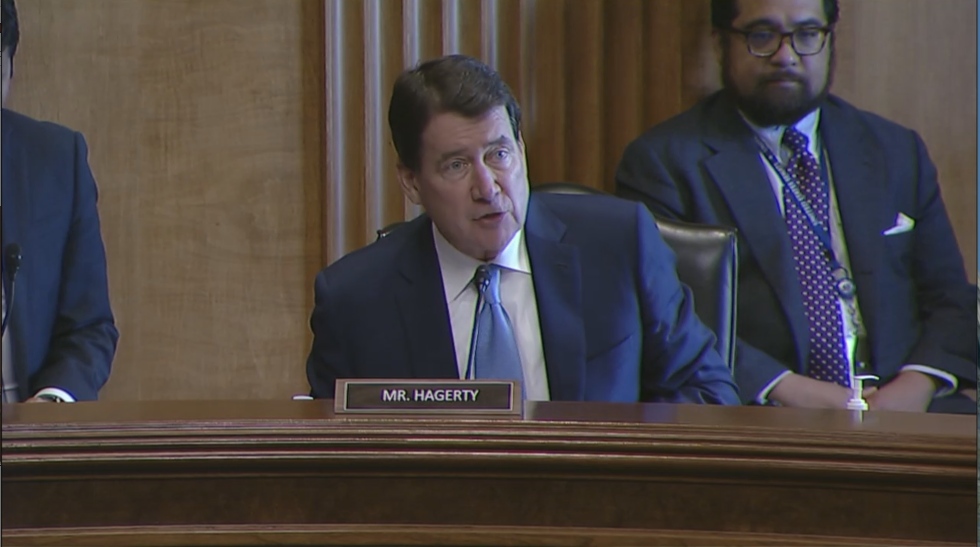WASHINGTON—United States Senator Bill Hagerty (R-TN), ranking member of the Foreign Relations Subcommittee on State Department and USAID Management, International Operations, & Bilateral International and former U.S. Ambassador to Japan, today delivered opening remarks at a hearing on modernizing the State Department for the 21st Century.

*Click the photo above or here to watch*
Remarks as prepared for delivery:
I want to thank Chairman Cardin for convening this hearing and for inviting me to participate. The first hearing of this Subcommittee is purposefully focused on the subject of modernizing the State Department for the 21st century.
Earlier this year, Chairman Cardin and I discussed the importance and the necessary steps that the State Department should undertake in order to ensure that the United States is well prepared to meet the full range of global challenges in this new era.
I have no doubt that under Chairman Cardin’s leadership that this Subcommittee will play a meaningful and productive role in changing American diplomacy for the future.
I also want to recognize our three witnesses who have graciously agreed to join us today, and I want to thank each of you for your service. We look forward to hearing from you.
As former Ambassador to Japan, I had the privilege of serving alongside some of the brightest and most capable men and women of the State Department.
And because of their work and sacrifice, the U.S.-Japan Alliance remains the cornerstone of peace and prosperity in the Indo-Pacific region.
I remember—within weeks of arriving in Tokyo—the North Korean regime tested the resolve of the United States and the entire world by launching multiple ballistic missiles over Japan.
I asked my team in Mission Japan to be at their best—to remember why they joined the State Department in service to our nation—because the country and the world needed them, and they delivered. So, I am deeply appreciative of what the men and women of the State Department care capable of.
What we are here to discuss today is not about the commitment of the people of the State Department.
Rather, the task at hand is to identify these aspects of the State Department that require urgent reform and to determine the way forward to achieve that goal.
We should be bold in reimagining the State Department. This should be guided by some very basic, foundational questions. To name a few:
What is the purpose of an Embassy in the 21st century?
How can the State Department attract, retain, and train the best talent?
What kind of infrastructure does the State Department need at home and abroad in the 21st century?
I look forward to hearing from our witnesses on how we should reimagine American diplomacy for the 21st century.
These are big issues that will not be resolved overnight, but we need to ask these big questions.
I look forward to working with Senator Cardin in a constructive manner to identify and take concrete, tangible steps towards creating a new, modern State Department. I see three critical milestones that we should strive towards:
First, Congress—as the ultimate objective—should pass new legislation to modernize the Foreign Service Act of 1980. 41 years has passed since the last major restructuring of the State Department, and we should seek to update and enhance the State Department for the 21st century.
Second, as part of that effort to pass new legislation, Congress should form a bipartisan commission to examine every aspect of American diplomacy—drawing on the expertise of a wide group of people with relevant experience and insight to advise our subcommittee.
Third, this Committee should continue to hold a series of hearings on this subject.
I look forward today to hearing from the witnesses their ideas as to what Congress and the Executive Branch can undertake as we modernize the State Department for the 21st century.